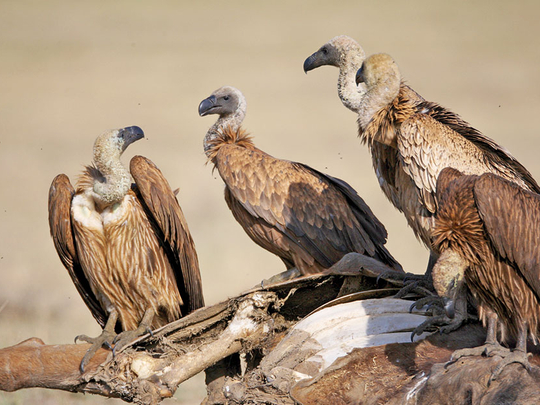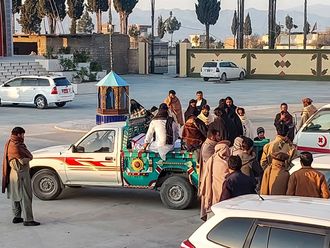
ISLAMABAD: In Pakistan a new restriction on drugs proving fatal for critically-endangered species of vultures has revived hope that as a result of these steps mass murder of this environment-friendly bird will come to an end.
As compared to 1980s and 90s, currently the vultures’ population has gone down by 90 per cent in the country and this alarming drop in their number is due to widespread use of non-steroidal anti-inflammatory drugs (NSAIDs).
These medicines cause renal failure when ingested.
Yet since 2006, only one such drug has been banned here in Pakistan and that too when the region’s collective vulture population was decreased by more than 95 per cent from the mid-1990s onwards.
In Sindh, the health officials have now imposed restriction on two more common drugs after years of demands and lobbying by conservationists.
According to World Wildlife Fund Pakistan chapter’s representative, Muhammad Jamshed Iqbal, the restriction is a result of long, consistent efforts by environmentalists.
“First we decided to restrict these drugs’ availability,” he said. “We wrote to the provincial health secretary asking him to restrict these two drugs from the area. They have restricted this drug and that is good news for the province’s vultures.”
The Chief Drug Inspector of Sindh has also ordered regional and district drug inspectors to restrict the use of aceclofenac and ketoprofen.
The Pakistan Vulture Restoration Project (PVRP) led by Iqbal has spent the past 12 years campaigning for the banning of the toxic non-steroidal anti-inflammatory drugs (NSAIDs) which cause kidney failure in the birds.
According to well known environmentalist Munir Ahmed in Islamabad, vultures control the population of disease-carrying scavengers that are a threat to human health.
These birds hold the key to ecosystem, he said, and the potential for disease transmission is reduced.
Without vultures, the number of mammalian scavengers increases, which gives rise to the threat of potential for disease transmission, threatening the health of humans and wildlife, he said. The government must ensure that recent restrictions on particular veterinary drugs, typically used in the breeding of livestock, are enforced, he said.












